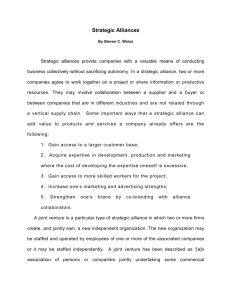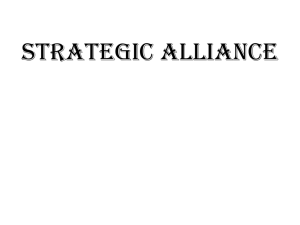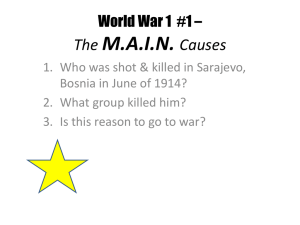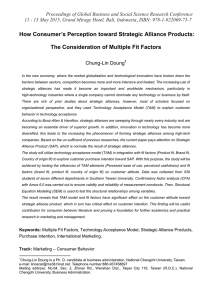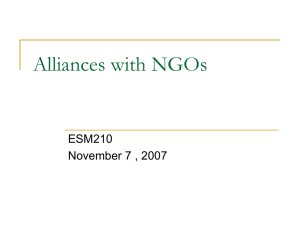Strength In Numbers
advertisement
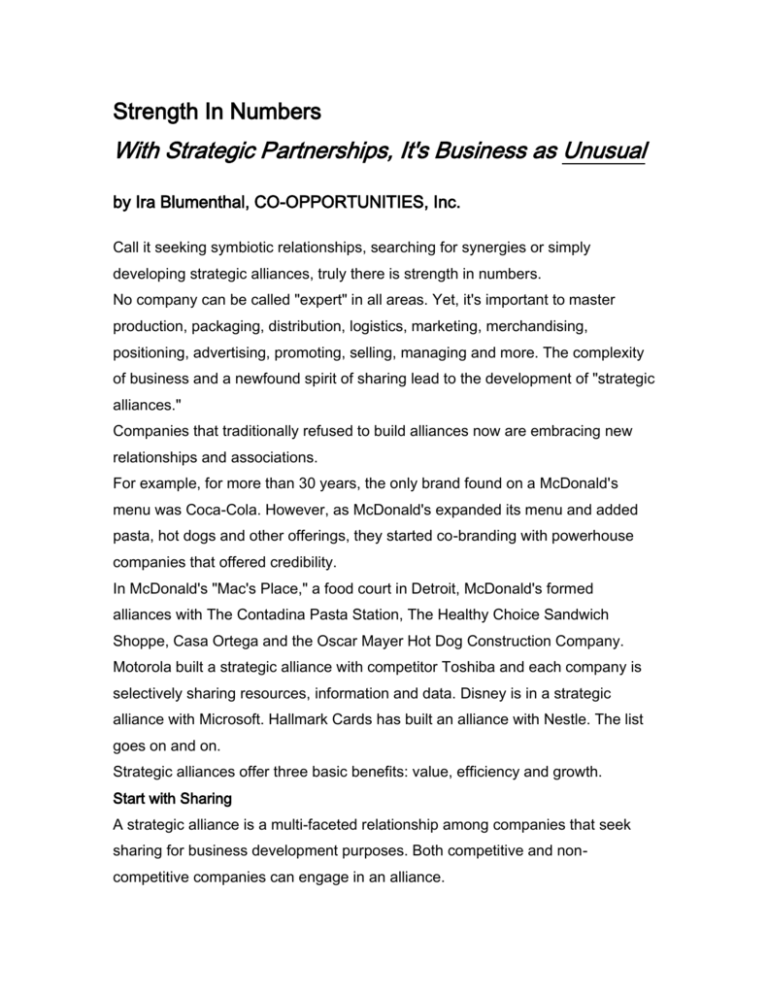
Strength In Numbers With Strategic Partnerships, It's Business as Unusual by Ira Blumenthal, CO-OPPORTUNITIES, Inc. Call it seeking symbiotic relationships, searching for synergies or simply developing strategic alliances, truly there is strength in numbers. No company can be called "expert" in all areas. Yet, it's important to master production, packaging, distribution, logistics, marketing, merchandising, positioning, advertising, promoting, selling, managing and more. The complexity of business and a newfound spirit of sharing lead to the development of "strategic alliances." Companies that traditionally refused to build alliances now are embracing new relationships and associations. For example, for more than 30 years, the only brand found on a McDonald's menu was Coca-Cola. However, as McDonald's expanded its menu and added pasta, hot dogs and other offerings, they started co-branding with powerhouse companies that offered credibility. In McDonald's "Mac's Place," a food court in Detroit, McDonald's formed alliances with The Contadina Pasta Station, The Healthy Choice Sandwich Shoppe, Casa Ortega and the Oscar Mayer Hot Dog Construction Company. Motorola built a strategic alliance with competitor Toshiba and each company is selectively sharing resources, information and data. Disney is in a strategic alliance with Microsoft. Hallmark Cards has built an alliance with Nestle. The list goes on and on. Strategic alliances offer three basic benefits: value, efficiency and growth. Start with Sharing A strategic alliance is a multi-faceted relationship among companies that seek sharing for business development purposes. Both competitive and noncompetitive companies can engage in an alliance. The key to alliance success is honesty, integrity and the view that the alliance is important. The partnership allows participants to share resources, strengthen management skills and enhance each organization's competitive positions. In a strategic alliance, all partners remain independent companies, no partner can be dominant and all parties must make equal contributions of resources like technology, products, etc. Changes in consumers require changes in the way we fundamentally do business and go to market. This, after all, is business as unusual. So what do you look for in a strategic alliance? Here's a checklist: similar long- and short-term objectives and ambitions similar corporate culture and management style similar business philosophies and positioning compatible skills, assets, deficiencies and image business development strategies that fit compatible financial conditions synergies among products, programs, markets and selling propositions and respect for each other's image and reputation Yes, this is business as unusual. However, "the mind is like a parachute. It only works when it's open." It's about sharing. It's about logical business development. It's about pursuing a new, relevant strategy for business building. © CO-OPPORTUNITIES, Inc., 1998 Ira Blumenthal's Great Signature Speeches 678/797-9199
